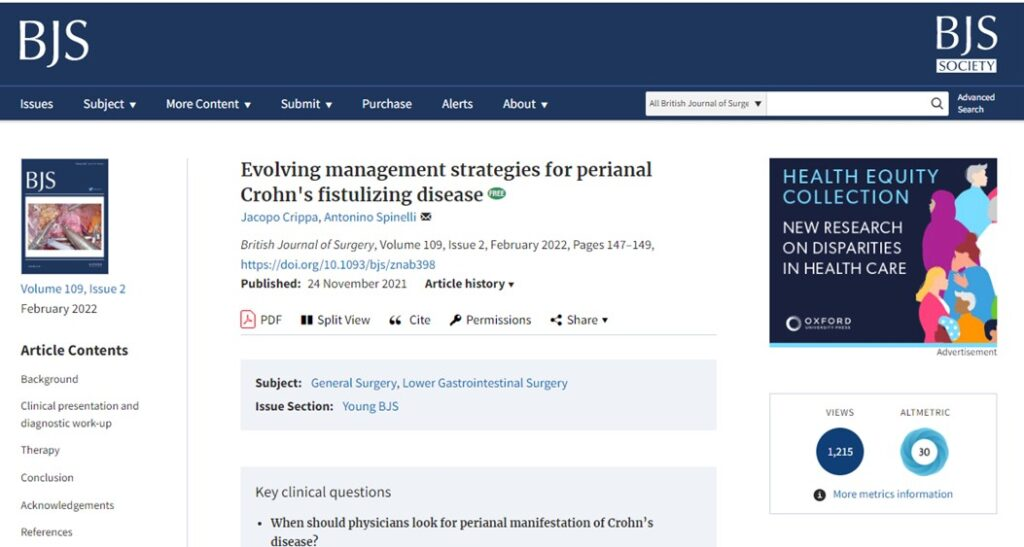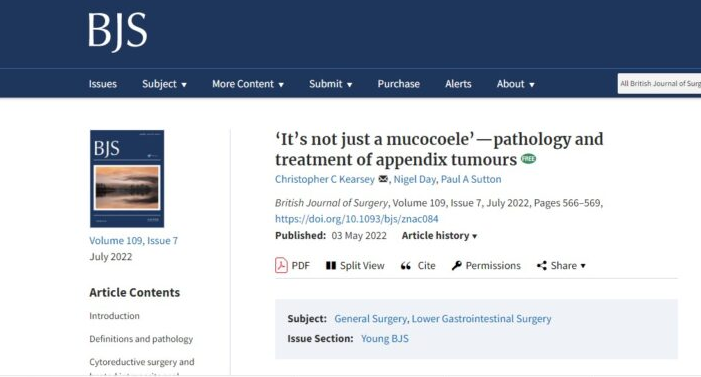BJS Academy>Young BJS>My Night on Call...
My Night on Call…The Human Touch
Gianluca Pellino, BJS Academy SoMe and Associate Professor of Surgery at University of Campania, Naples, Italy, @GianlucaPellino
23 June 2022
General
Related articles

Evolving management strategies for perianal Crohn’s fistulizing disease
Jacopo Crippa, Antonino Spinelli British Journal of Surgery, Volume 109, Issue 2, February 2022, Pages 147–149 Comment: the authors recommend integrating medical and surgical management.

My night on-call in Sweden
Hans Lederhuber ha.lederhuber@mailbox.org, @HansL16
As a very junior surgical registrar I took care of a fairly young patient with metastatic prostate cancer for palliation. He was referred to hospital by the community palliative team at regular intervals for scaling up his palliative treatment. He was one of those patients who has been in hospital so much that they know the ward better than some of the junior doctors. As ward registrar, I had established a friendly doctor-patient relationship with him and checked on him whenever time allowed. This particular night, as so many night shifts before, I wandered down the dimmed ward corridors to check with the nurses that all patients were settled. I knocked on my patient’s single room door and he lay there, listening to his favourite tunes. His face oedematous and pale, but he always smiled at me. He knew his time was running out but he told me still about future plans he and his partner had: a weekend trip, as soon as he could leave hospital. We talked a bit about travelling until I was bleeped by ED to check on a patient. I told the patient goodbye and was about to leave the room. He called me back, took my hand and pressed it firmly. Thank you, he whispered, looking at me intensely. I’ll pop back in in the morning, before I head home, I promised. The next morning, the nurse on the ward asked me to fill in the death certificate for a patient who had died during the night. There was a valid DNR-form on the chart and the night team had not seen any point in disturbing me in my work with the not-unexpected death of a palliative cancer patient. He was not the last patient I told a “see you tomorrow” that never happened, but he was my first. While I do not remember every palliative patient who died during my night shift, this very first patient is burned deep into my memory. Comment:Coming to terms with caring for the dying patient.

“It’s not just a mucocoele” – pathlogy and treatment of appendix tumours.
Christopher C Kearsey, Nigel Day, Paul A Sutton
Comment: If diagnosed, the patient should be referred to a specialist centre.
Copied!
Connect

Copyright © 2025 River Valley Technologies Limited. All rights reserved.








.jpg)



